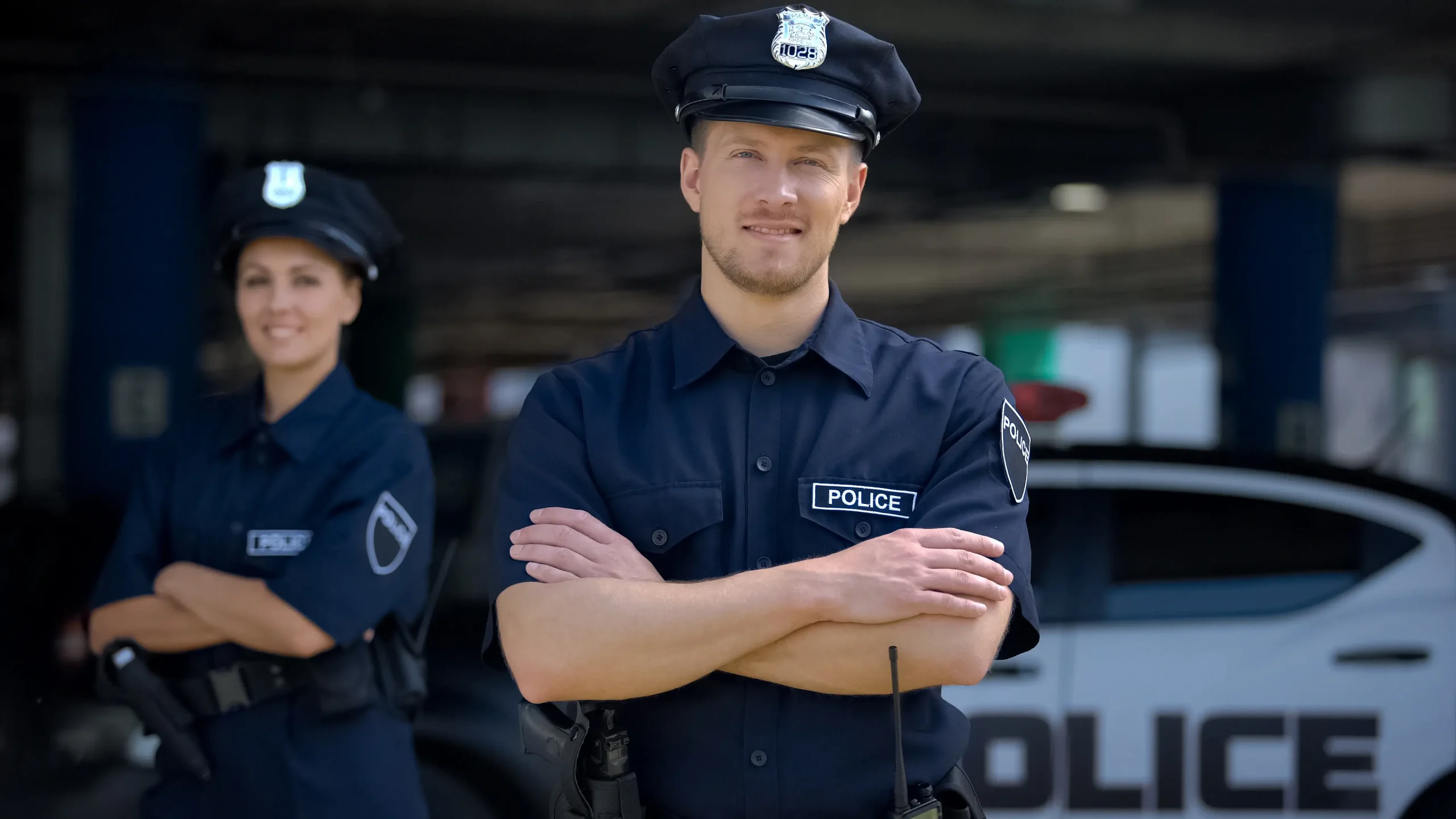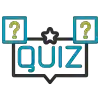Pass the 2025 MTA Police Exam on Your First Try: MTA Police QuickPass Prep + Free Practice Test
- Overview
- Curriculum
- Reviews
Picture this: You’ve studied on your own, walked into the exam hall, and halfway through, the questions feel nothing like what you expected. That sinking feeling? It’s what causes most candidates to stumble.
MTA Police QuickPass was built to stop that from happening. With realistic practice and insider-level prep, you’ll know the test inside out—so instead of second-guessing, you’ll be moving one step closer to the academy.
No surprises, no blind spots—just confidence. Take our free practice test today and see in minutes whether you’re exam-ready or still a step behind.
Take a Free MTA Police Practice Test
MTA Police Free Practice Test
10 Questions - 5 Minutes
What is the MTA Police Exam?
The phrase “MTA Police Exam” can mean one of two entrance tests, depending on where you apply:
- New York Metropolitan Transportation Authority Police (NY/CT): A bi-state agency protecting millions of riders across New York and parts of Connecticut.
- Maryland Transportation Authority Police (MD): Maryland’s statewide transit police force, patrolling buses, rail, and commuter systems.
Both exams are designed to screen candidates for the same core traits: sharp reasoning, strong judgment, and the right personality fit for transit policing. Passing isn’t just about knowledge—it’s about proving you can handle the unique challenges of law enforcement in busy transit systems.
MTA Police Exam Format
The written entrance test for the New York Metropolitan Transportation Authority Police Department most often uses the NCJOSI-II (National Criminal Justice Officer Selection Inventory, Version II). This is a nationally recognized law enforcement exam designed to measure both cognitive aptitude and situational judgment. The Maryland Transportation Authority Police uses a similar assessment, though details may vary slightly.
| Feature | Details |
|---|---|
| Type | Paper-based or computer-based, multiple-choice |
| Sections | Two parts – Cognitive Aptitude and Situational Judgment |
| Questions | About 200 total (≈80 cognitive, ≈120 situational) |
| Time Limit | Typically 2.5–5 hours |
| Passing Score | Around 70% |
MTA Police Exam Sections
This section of the NCJOSI-II measures essential problem-solving and reasoning skills needed in policing. Subsections include:
Cognitive Aptitude Sections
These sections evaluate your ability to process information, solve problems, and apply logical reasoning to real-life policing scenarios.
Deductive Reasoning
This type of logic applies regulations and rules to different situations. You will read text containing policies or state laws, followed by scenarios. Your task is to use these policies to decide the most appropriate action for each case.
Inductive Reasoning
This is similar to deductive reasoning, where you reach a logical conclusion after reviewing the passage or question. The questions may appear as pictures, scenarios, objects, passages, tables, or charts. Your task is to identify the common element, concept, rule, or sequence.
Flexibility of Closure
The flexibility of the Closure measures how quickly you can spot a pattern despite distractions or missing details. You’ll need to find a key pattern hidden within a larger, more cluttered one.
Information Gathering
This section tests your ability to logically sequence information. You’ll be given five or six statements and must arrange them in the correct order by choosing the response with the proper sequence.
Problem Sensitivity
You’ll be given a short passage, often describing a conflict an MTAPD officer might face in daily duties. Your task is to choose the most appropriate response from the options provided.
Selective Attention
Selective Attention tests your ability to focus despite distractions. This skill is crucial for tasks like security checks or recalling license plate numbers. Expect to see complex strings of numbers, letters, and symbols.
Spatial Orientation
This section measures a candidate’s ability to determine their location within a city, building, or set of structures. The NCJOSI and MTA police exams test this skill using maps and layouts.
Verbal Comprehension
Verbal Comprehension is the ability to understand spoken or written information and apply it to different tasks. This section evaluates your capacity to read and comprehend English text.
Verbal Expression
This section presents incomplete sentences where you must select the correct completion. In another format, you’ll identify misspelled words in a passage and choose the option with the correct count.
Visualization
This part is used to examine your mental imagery skills. You will be asked to identify the original object, pattern, or person after changes in position or appearance have been made.
Situational Judgment Section
The NCJOSI-II also includes a Situational Judgment Test (SJT). You’ll face policing scenarios and must choose the best (and sometimes worst) response. This section evaluates:
- Judgment and ethical reasoning.
- Ability to de-escalate situations.
- Problem-solving in high-pressure contexts.

MTA Police QuickPass
Last Updated: Sep 23, 2025
Course Content
-
 Introduction 1 StepBuy this Course: Get full access to all lessons, practice tests and guides.
Introduction 1 StepBuy this Course: Get full access to all lessons, practice tests and guides. -
 Flexibility of Closure 2 StepsBuy this Course: Get full access to all lessons, practice tests and guides.
Flexibility of Closure 2 StepsBuy this Course: Get full access to all lessons, practice tests and guides. -
 Deductive Reasoning 2 StepsBuy this Course: Get full access to all lessons, practice tests and guides.
Deductive Reasoning 2 StepsBuy this Course: Get full access to all lessons, practice tests and guides. -
 Inductive Reasoning 2 StepsBuy this Course: Get full access to all lessons, practice tests and guides.
Inductive Reasoning 2 StepsBuy this Course: Get full access to all lessons, practice tests and guides. -
 Information Gathering 2 StepsBuy this Course: Get full access to all lessons, practice tests and guides.
Information Gathering 2 StepsBuy this Course: Get full access to all lessons, practice tests and guides. -
 Problem Sensitivity 2 StepsBuy this Course: Get full access to all lessons, practice tests and guides.
Problem Sensitivity 2 StepsBuy this Course: Get full access to all lessons, practice tests and guides. -
 Selective Attention 2 StepsBuy this Course: Get full access to all lessons, practice tests and guides.
Selective Attention 2 StepsBuy this Course: Get full access to all lessons, practice tests and guides. -
 Spatial Orientation 2 StepsBuy this Course: Get full access to all lessons, practice tests and guides.
Spatial Orientation 2 StepsBuy this Course: Get full access to all lessons, practice tests and guides. -
 Visualization 2 StepsBuy this Course: Get full access to all lessons, practice tests and guides.
Visualization 2 StepsBuy this Course: Get full access to all lessons, practice tests and guides. -
 Verbal Comprehension 2 StepsBuy this Course: Get full access to all lessons, practice tests and guides.
Verbal Comprehension 2 StepsBuy this Course: Get full access to all lessons, practice tests and guides. -
 Verbal Expression 2 StepsBuy this Course: Get full access to all lessons, practice tests and guides.
Verbal Expression 2 StepsBuy this Course: Get full access to all lessons, practice tests and guides. -
 Behavioral Orientation 2 StepsBuy this Course: Get full access to all lessons, practice tests and guides.
Behavioral Orientation 2 StepsBuy this Course: Get full access to all lessons, practice tests and guides. -
 Full Length Practice Tests 3 StepsBuy this Course: Get full access to all lessons, practice tests and guides.
Full Length Practice Tests 3 StepsBuy this Course: Get full access to all lessons, practice tests and guides. -
 Bonus - Interview Process 1 StepBuy this Course: Get full access to all lessons, practice tests and guides.
Bonus - Interview Process 1 StepBuy this Course: Get full access to all lessons, practice tests and guides. -
 Bonus - Medical Evaluation 1 StepBuy this Course: Get full access to all lessons, practice tests and guides.
Bonus - Medical Evaluation 1 StepBuy this Course: Get full access to all lessons, practice tests and guides. -
 Bonus - Background Check 1 StepBuy this Course: Get full access to all lessons, practice tests and guides.
Bonus - Background Check 1 StepBuy this Course: Get full access to all lessons, practice tests and guides. -
 Bonus - Psychological Evaluation 1 StepBuy this Course: Get full access to all lessons, practice tests and guides.
Bonus - Psychological Evaluation 1 StepBuy this Course: Get full access to all lessons, practice tests and guides. -
 Bonus - Polygraph Test 1 StepBuy this Course: Get full access to all lessons, practice tests and guides.
Bonus - Polygraph Test 1 StepBuy this Course: Get full access to all lessons, practice tests and guides.
Why Choose MTA Police QuickPass?
The MTA Police Exam is tough by design. MTA Police QuickPass gives you the edge to master it—fast. Here’s what makes our prep different:
Real Exam Simulation: Two full-length practice tests mirror the exact format, timing, and pressure of the NCJOSI-II. Take them timed for exam-day realism or untimed to learn at your own pace.
Extensive Practice Library: Over 100+ realistic practice questions plus 10+ short, skill-focused quizzes sharpen your abilities in every exam area.
Complete Exam Coverage: From cognitive reasoning to situational judgment and psychological assessments, we cover every section determining your score.
Time Management Strategies: Learn how to pace yourself across 200+ questions, avoid common traps, and finish strong.
Instant Feedback: Every question comes with step-by-step explanations, helping you turn mistakes into strengths quickly.
Bonus Hiring Resources: Beyond the written test, we guide you through the interview process, background screening, medical and psychological evaluations, and even the polygraph test.
With MTA Police QuickPass, you don’t just practice—you prepare with purpose. That’s why our students walk into the exam confident and walk out with scores that count.
Success Stories
4.6 255 Reviews
rob, 16 Jan
Solid review course that covers the…
Solid review course that covers the relevant topics in good detail
chad, 11 Jan
Great Program, amazing practice simulations
Easy to understand. Passed tests on first time thru.
QUEEN RIGHTEOUS, 07 Jan
Highly recommended.Great instructional…
Highly recommended.Great instructional information. I passed on the first try.
MasterCommand, 14 Nov
Prepterminal. Prepare, practice, execute.
To say that Prepterminal helped me prepare and be ready for the testing phase would be an understatement. At first, looking at the course, I felt overwhelmed with the course material, but the course broke down each subject effectively which made it easier to understand. There were a few issues with some of the audio portion of the testing course, but beyond that, the course was well worth the money.
Abazix LLC, 09 Nov
Would recommend
Study material helped to pass my test on the first try.
Natalia M. Delgado, 08 Nov
Exelent course 100% guaranteed
Exelent course 100% guaranteed
Frequently Asked Questions (FAQs)
How do I apply for the MTA Police Exam?
To apply, candidates must complete an online application through the official MTA Careers Portal. Simply search for “police” to view current openings, then select the MTA Police Officer position. Applications are submitted electronically, and all updates about your status will be sent to the email address you provide during registration.
What are the basic qualifications to sit for the MTA Police written exam?
Applicants must meet the following requirements:
- U.S. Citizenship is mandatory.
- Education: A high school diploma or GED.
- Age: At least 19 years old and not older than 35 on the exam date.
- Military Exception: Time spent on active military duty (or terminal leave) may be deducted from your age, up to a maximum of 6 years.
How are candidates selected for the written examination?
Meeting the qualifications does not guarantee an exam slot. Eligible candidates enter a random selection process, and only those chosen will be invited to sit for the MTA Police Exam.
When will I receive my MTA Police Exam results?
Results are usually released within 8–10 weeks after the test date. Notifications are sent by email, so it’s important to check the same email account you used for your online application.
What happens after passing the MTA Police Exam?
Candidates who pass may be invited to continue the MTA Police hiring process, which includes several additional steps:
- Physical fitness test (based on Cooper Standards)
- Structured panel interview
- Full background investigation
- Medical examination
- Psychological evaluation
- Polygraph examination
- Police Academy training
- Probationary employment period
Completing each stage is required before officially becoming an MTA Police Officer.

Created by: Michael Lerner
BSc, Psychometric Tutor, Prepterminal Test Expert
1426 students, 4.6, 255 Reviews
Hey, welcome to our MTA Police Exam Prep Course. I’m Michael, I am here to assist you with any queries you may have about the MTA Police Exam Preparation. Don’t hesitate to contact me at [email protected].
